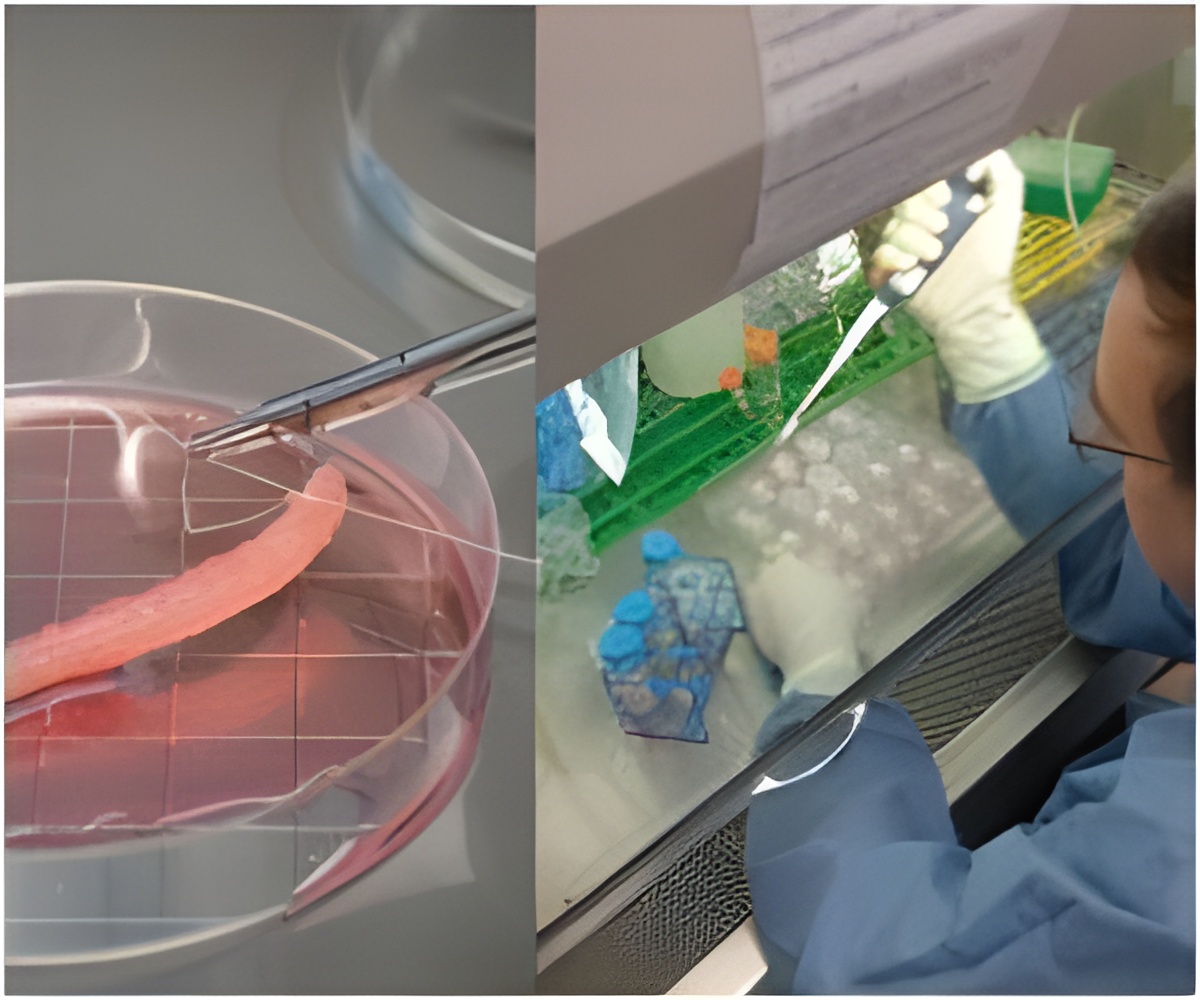
The tissue-engineered small intestine they developed contains important elements of the mucosal lining and support structures, including the ability to absorb sugars, and even tiny or ultra-structural components like cellular connections.
Regenerative medicine technique brings surgeons one step closer to helping patients. Tissue-engineered small intestine (TESI) grows from stem cells contained in the intestine and offers a promising treatment for short bowel syndrome (SBS), a major cause of intestinal failure, particularly in premature babies and newborns with congenital intestinal anomalies.
TESI might one day offer a therapeutic alternative to the current standard treatment, which is intestinal transplantation, and could potentially solve its largest challenges, donor shortage and the need for lifelong immunosuppression.
The research is published in the American Journal of Physiology: GI and Liver.
Source-ANI









